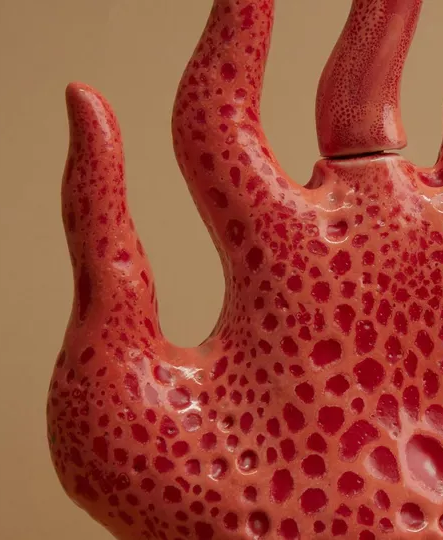10 : 11 : 23 : Weekly Debrief
This week: A dual battle for a Sustainable Future, Tiktok music festivals, a customisable Daihatsu, new tool allows artists to poison AI models, Cultured Waste, and junk food sales soar in India.
1. Climate Change and Women’s Rights: A Dual Battle for a Sustainable Future
‘There is no such thing as a single-issue struggle because we do not live single-issue lives,’ is what the intersectional feminist Audre Lorde famously said in her 1982 speech about the Civil Rights Movement in America. In 2023, this logic can also be applied to our understanding of climate change, which officially is no longer viewed as a single issue but rather a ‘threat multiplier’, meaning it heightens existing inequalities within societies. One of these historical inequalities is women's rights: it's been documented time and time again that gender inequality and the climate crisis are interconnected.
First, the issue is economic. As many women worldwide are responsible for household and caregiving duties, when extreme weather events or natural disasters linked to climate change occur, they often bear the brunt of these responsibilities, limiting their access to education and work. Those in employment may find that extreme weather events such as heat will negatively affect their work performance as it takes longer for them to perform the same volume of paid or unpaid work. The economic disparity also affects women's ability to adapt to climate change worldwide; men have more access to vital resources such as land, money and technology.
Climate change is exacerbating women's health issues too, much more so than men's. An analysis of 130 peer-reviewed studies reveals that pregnant individuals face distinctive threats to reproductive and maternal health due to climate change, increasing health risks for pregnant women and foetuses and restricting access to reproductive and maternal health services. Women are also at a higher risk of climate-induced food insecurity and face increased susceptibility to injury or death from extreme weather events.
Sadly, violence and sexual violence against women and girls increase with extreme weather. A study has found that a rise in average temperatures was connected to a rise of more than 6.3% in incidents of physical and sexual domestic violence across India, Pakistan and Nepal.
 Photography by Cottonbro Studio, Russia
Photography by Cottonbro Studio, Russia
2. News article: TikTok ventures into live music with In The Mix festival
US – TikTok is breaking into the live music scene with its inaugural In The Mix festival, which will feature an impressive line-up including Cardi B, Niall Horan, Anitta and Charlie Puth, along with emerging artists and surprise guests. In The Mix will also showcase talents from TikTok’s Elevate programme.
This new branded festival will come to life at Sloan Park in Mesa, Arizona, on 10 December 2024, and will be globally streamed via TikTok Live. It aims to bring the TikTok community’s creative and communal spirit to a live event, with activities inspired by top trends on the platform.
In a press release, Paul Hourican, TikTok’s global head of music partnerships and programming, emphasised TikTok’s unique blend of music, creativity and community. He also explained that In The Mix is designed to transform the digital For You feed into a tangible experience for both in-person and online audiences, aligning with the platform’s vision for a music-focused global community. The launch of In The Mix also highlights the fervent enthusiasm with which audiences are willing to engage with in-person events, as revealed in our Great Concert Comeback Op-ed.
3. Daihatsu’s mini-EV lets drivers customise cars with 3D-printed parts
Japan – A new concept car from Daihatsu Motor allows drivers to personalise their vehicle’s modular interior and exterior, pointing to a more personalised automotive market for future generations.
Introduced at the Japan Mobility Show 2023, me:MO is a mini-passenger Battery Electric Vehicle (BEV) that can be fitted with 3D-printed car parts. Assuming access to 3D printing technology, the sustainable car can evolve in time alongside the driver.
Not only can the exterior be personalised to suit the driver’s personal preferences but the spacious interior can also be remodelled to provide either a single seat, with more space for luggage or belongings, or multiple seats to fit friends or family.
‘We changed the way cars were manufactured and made it possible to modify not only the design but also the form of the vehicle by constructing a modular structure of interior and exterior parts with necessary and sufficient functionality,’ said Daihatsu Motor.
As we explored in our Not Your Parents’ Car report, to target so-called car-averse Gen Z the automotive sector must use innovative designs and technology. Daihatsu’s personalisable me:MO vehicle has the necessary sustainability, aesthetic and innovative credibilities to capture young people’s attention.
4. New tool allows artists to poison AI models to protect their work from scraping
US – A pioneering tool named Nightshade is placing the power back into the hands of artists by enabling them to sow chaos in AI models that appropriate their creations without consent. This follows outrage from swathes of artists condemning AI companies such as OpenAI, Google, Meta and Stability AI for using their work to train their generative AI models.
Ben Zhao and his team at the University of Chicago found inspiration in poison to create Nightshade. As AI training models often associate images with text descriptions found in metadata, the tool will manipulate the latter to create confusion. A dog picture, for example, is usually paired with the word dog in its metadata. Nightshade disrupts this pairing by making subtle alterations to the image, making it appear like a cat to AI models while still looking like a dog to humans. The goal is to contaminate future AI models so that companies have to revert to older versions or stop using artists’ works altogether.
As explored in The Future of Responsible AI, consumers and elected officials can and will have the potential to compel technology companies to do better. Acknowledging artists’ rights and providing compensation is the start of worldwide calls for more AI regulation.
 Gaudism AI
Gaudism AI
 Fingernail Fungi by Jihyun Kim, created with red coral fungi, was inspired by Korean folklore about fingernails and the mouse, London
Fingernail Fungi by Jihyun Kim, created with red coral fungi, was inspired by Korean folklore about fingernails and the mouse, London
5. Cultured Waste
Sustainability is entering a new era. We’ve cycled through eco-anxiety, eco-grief, climate doom and are now in a state of eco-fatigue.
Greenwashing and misinformation combined with the paralysing experience of watching the climate crisis play out in real time have left consumers feeling numb. Meanwhile, many brands seem to have all but given up: over the past three years, only 4% of advertisements contained sustainability messaging, with the number of ads centring around sustainability falling by 47% at the beginning of 2023, compared with December 2023 (source: CreativeX).
Brands have turned to Subversive Sustainability Ads to cut through the noise, but in the creative world, designers are taking a different tack and exploring refreshing narratives.
If there’s one thing the world isn’t in short supply of, it’s waste. By 2050, global waste is expected to have increased to 3.4bn tonnes, an increase of 70% since 2016, yet less than 20% is currently recycled (source: Statista).
6. Stat: Junk food sales soar in India as industry turns to new markets
India – According to Bloomberg, regulations, greater public health awareness and the popularity of appetite-suppressing drugs have slowed sales of packaged and processed food and drinks in Western markets, leaving the junk food industry in need of a new frontier.
It has consequently turned to populous emerging economies such as India, threatening a national health crisis.
Sales of snacks and soft drinks have almost tripled in India in the past decade, exceeding £24.2bn ($30bn, €27.9bn) in 2022. Unilever, which produces items such as mayonnaise and ice cream, expects the country to become its largest source of revenue within a decade.
Although extreme hunger still affects much of India, the opposite problem is now also true. In the past three decades of swift economic development and urbanisation, the adult obesity rate has more than tripled. According to the World Obesity Federation, among children, the annual rise in India is the steepest in the world.
At LS:N Global we’re tracking how weight loss drugs are affecting indulgence across the globe. For more information, look out for our upcoming Weight Loss Market report.
7. New Sprint Services
Book our half-day Sprints and ensure your business is focusing on the most valuable insights and prioritising the right strategic initiatives.

Want to read more?
Become a member today!
Sign up to one of our trends intelligence platform, LS:N Global and get unlimited access to a hive of insights - from microtrends and macro trends to market reports, daily news, research across eight industry sectors and much more.
Discover our memberships
Already a member? Click here to login
